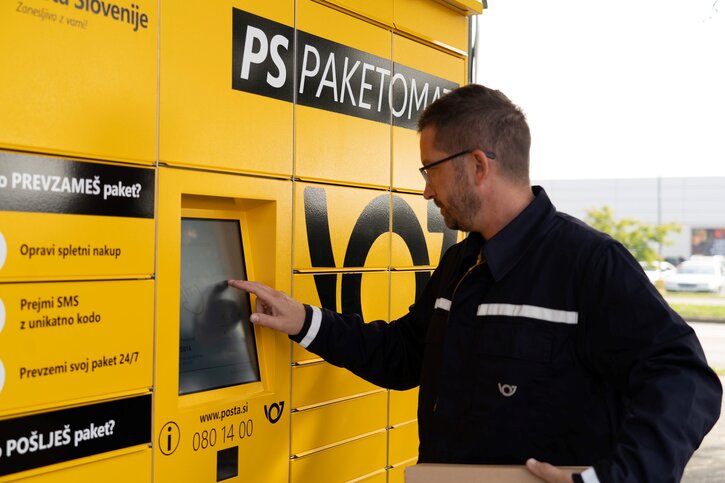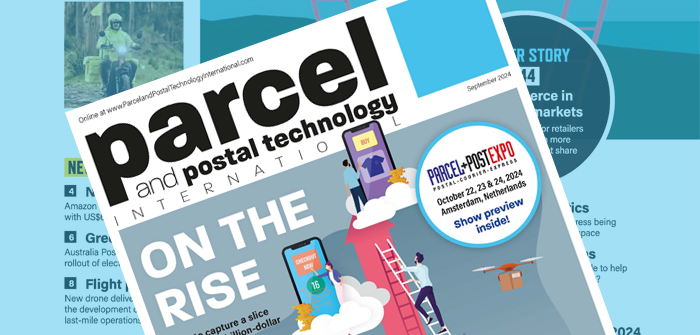E-commerce has changed the face of retail in developed markets, and its rapid growth is continuing. Euromonitor International forecasts that e-commerce sales globally will grow by US$1.4tn from 2022 to 2027.
With many markets already firmly established, nearly two-thirds of this growth is expected to come from countries in emerging markets such as Latin America, Africa, Asia and the Middle East. The potential is significant – Euromonitor reports that by 2027 these emerging markets will comprise more than half of global e-commerce sales, partly because they represent 86%, or 6.8 billion, of the population globally.
Such rapid growth is enabled by the accelerating adoption of e-commerce. In Latin America, for example, the share of those shopping online grew from one-third in 2017 to more than half of all consumers by 2021. Growth has continued at pace since then, with more than 290 million e-commerce shoppers in the region in 2024.
That figure is forecast to grow to 419 million users by 2029, according to Statista, with Brazil and Mexico offering the most significant opportunities as the biggest markets in Latin America. The e-commerce adoption escalation is similar in Asia, where user penetration is expected to rise from 39% to 50% by 2029, to 2.1 billion users.
Increased adoption of e-commerce in emerging markets offers considerable opportunities for retailers who establish themselves early enough to take full advantage. It requires work – tailoring marketing, payments and sometimes even the product offer to local preferences – but the rewards of tapping in to these growth areas are huge.
The infrastructure challenge
Such markets often have a big advantage over developed countries. They tend to be mobile-first, meaning that consumers are more likely to adopt and be comfortable with mobile-friendly applications and use cases such as digital wallets, online shopping and delivery apps and social commerce. Digital adoption is growing quickly as a result, with such markets unhampered by some of the challenges of more developed markets where old habits often die hard.
But although the digital infrastructure may be streets ahead in many countries, the delivery infrastructure isn’t. This can hamper delivery and affect e-commerce growth.

In Asia, the sheer scale of the region is an issue. The geographical diversity is challenging, which has led to the emergence of technologies like drones for last-mile delivery in Indonesia or a reliance on more traditional options such as two-wheelers for urban deliveries in India.
For other areas, such as Africa, the poor quality of local transportation infrastructure can mean that traditional options that are commonplace in developed markets don’t work so well, and delivery companies have to look at alternative options.
In Latin America, there can be challenges related to corruption, customs regulations and import duties that can hamper e-commerce growth.
The partnership approach
To overcome such barriers, postal operators and logistics companies are increasingly working together with local incumbents to smooth the path of delivery and enable continued e-commerce growth.
Such partnerships combine the broader expertise of larger businesses – and their deeper investment pockets – with the local market knowledge of domestic players that would otherwise lack the funds and organizational ability to invest in infrastructure at scale themselves.
Postal giants such as SingPost are working with smaller partners to support them with value-added services that they may lack but that are essential for e-commerce, such as customs clearance, last-mile fulfillment and returns management. As well as enabling larger players to establish themselves in emerging markets, this approach also helps them to diversify revenue and protect their businesses for the future.
Such partnerships also make new markets less daunting, according to Beth Chapman, managing director of Starlinks Global, a cross-border logistics provider. “For example, there is a common misconception that shipping to the Middle East is difficult. But by working with experienced delivery providers who understand the region, they can act as a gateway to a whole new segment of customers to benefit from the tremendous growth opportunities the region can enable,” she explains.
SingPost is working hard to develop partnerships with a range of partners to support e-commerce expansion in the emerging markets, with a particular focus on the ASEAN region, according to Sid Hart, the company’s vice president of strategy, PMO, communications and marketing. “SingPost has formed alliances with major e-commerce platforms and postal operators in countries such as Vietnam, Thailand, Lithuania and Kazakhstan,” Hart comments. “These collaborations leverage local expertise and infrastructure to enhance delivery services. The company is also concentrating on high-potential ASEAN markets, facilitating trade within the region and expanding connections to Western markets like the UK and US.”

SingPost’s more recent alliances include the signing of a memorandum of understanding in May with Lietuvos paštas (Lithuania Post). Under this agreement, the companies will cooperate on technology innovations and understanding laws and regulations, and will work together on e-commerce and logistics development.
Also in May 2024, SingPost signed a strategic cooperation agreement with Qazpost, the national postal operator of the Republic of Kazakhstan. The organizations will explore efficient logistics routes between the two countries to support e-commerce growth and the possible adoption of SingPost’s machinery and equipment, including its e-commerce drop-off systems.
“Strategic collaborations with postal operators such as Lithuania Post and Qazpost position us as a preferred logistics provider in key regions, enabling us to meet the diverse needs of e-commerce players,” Hart confirms.
Elsewhere, China Post Group and Pošta Slovenije (Slovenia Post) signed a cooperation agreement in April after an increase in shoppers from Slovenia buying from Chinese e-commerce operators as China’s cross-border e-commerce business thrives.
Matej Raspet, director of the parcel and marketing divisions at Pošta Slovenije, believes that although his company has developed a wide range of top-class trusted last-mile delivery and returns solutions that are tailor-made to support the needs of e-retailers and their customers, the partnership route is important to build capabilities further. He says his company is interested in other such agreements as it looks to bolster its expertise.
“The group is open for strategic partnerships with other established providers of postal and logistics services to further enhance the quality of its services and introduce new high-tech, innovative solutions that would help its customers succeed, and directly with the e-retailers to provide the possibility of designing the services according to their specific needs,” he says.
Martin Palmer, co-founder of Hurricane Commerce, which works with postal operators, carriers, customs brokers and freight forwarders across the world, confirms that such partnerships are happening in most markets, from India and Indonesia to Mexico as companies look to build strengths. “Established postal operators are collaborating with local e-commerce platforms and logistics companies to enhance delivery capability,” he says. “They are also implementing advanced tracking and automation technologies to improve efficiency, and are investing in logistics infrastructure to support growing e-commerce needs.”
Sharing expertise
Training and development is another area in which postal operators can help to improve the delivery experience for e-commerce customers, according to Palmer: “Established postal operators are providing training programs to local service providers to improve service quality and efficiency.”
Learning from developed e-commerce markets and established players is vital to power e-commerce success. This includes the use of technology such as AI, robotics and automation; a seamless and transparent customer experience; infrastructure development; and an understanding of and investment in sustainability practices that meet consumer and regulatory expectations, according to Palmer.

The role of technology is key to maximize the e-commerce opportunity and enable more intelligent logistics. AI and machine learning enable demand forecasting, inventory management and route optimization, while robotics and automation enhance efficiency in fulfillment centers and reduce manual labor. Collaboration platforms enable better coordination between retailers and logistics providers while IoT enables real-time tracking of shipments and improves overall supply chain visibility. Finally, drones and autonomous vehicles can address last-mile delivery challenges and improve the speed of delivery.
At SingPost, Hart believes that technologies and collaborations are vital to enhancing the company’s services and supporting e-commerce expansion. “By using AI and machine learning, we streamline returns processes, improve tracking accuracy and reduce fraud,” he says.
Better management of returns is a key lesson that the postal operator aims to bring to emerging markets. With this in mind, it has developed integrated, white-labeled international returns management solutions to streamline reverse logistics and cross-border returns in such markets.
“For developed e-commerce markets, the experience of returns management is a crucial differentiator,” continues Hart. “Ensuring hassle-free returns is crucial for customer satisfaction and repeat purchases. As such, ensuring customer-centric returns and efficient reverse logistics by leveraging data-driven insights and collaboration is important.
“We are optimizing reverse logistics to reduce costs and environmental impact, adopting data analytics to enhance customer experiences, and fostering collaboration with retailers and technology companies to drive innovation in returns management.”
More intelligent use of data is another key lesson that larger players can teach emerging markets, according to Hurricane Commerce’s Palmer. “Data has become the new oil, fueling the efficiency and effectiveness of modern supply chains. Accurate data enables better decision making, improves inventory management and facilitates real-time tracking and transparency, which are all vital for meeting and exceeding customer expectations in today’s competitive market.
“This is equally important for emerging markets or an already established one trying to maintain a competitive edge in an ever-expanding online global market.”
How countries in emerging markets can differ
China is the leading example of how to do e-commerce and efficient delivery well in Asia and around the world. The country is home to several robust domestic e-commerce platforms that are powering growth, such as Alibaba and JD.com. It also boasts an advanced digital infrastructure and a tech-savvy population.
According to HSBC, more than 60% of Chinese consumers shop online, with 37% of retail spending generated through e-commerce channels. But Chinese e-commerce giants such as Temu and Shein are also expanding outside of their home territory. It’s a huge growth area, with HSBC estimating that China will generate US$500bn in cross-border B2C e-commerce by next year, up from US$155bn in 2019.
Hurricane’s Martin Palmer says China is an example of how fulfillment should be done: “China has highly advanced fulfillment centers with the use of automation and AI and an extensive network of warehouses. In last-mile operations it offers efficient and quick delivery options and widespread use of drones and autonomous delivery vehicles.”
Meanwhile, in the Middle East, Starlinks Global’s Beth Chapman believes it is essential to understand the region’s nuances, particularly when it comes to delivery. “This includes knowing when and how ID numbers might be required, differentiating between DDU (delivery duty unpaid) and DDP (delivery duty paid), and strategically offering cash-on-delivery options,” she says.
“Additionally, providing delivery notifications in both Arabic and English, employing Arabic-speaking customer service agents, and ensuring deliveries are made to the door rather than collection points can make or break a brand’s success in this dynamic market,” she continues.
In other markets, such as Latin America, last-mile operators work with local courier networks to improve delivery speed and reliability in markets such as Brazil where the infrastructure can vary. In Mexico, motorcycles and bicycles can help overcome the challenge of congested urban areas in last-mile delivery. But no two markets are the same. For e-commerce success, posts and logistic partners must look at the individual markets to work out the best fit for their services.
This article was originally published in the September 2024 issue of Parcel and Postal Technology International.



